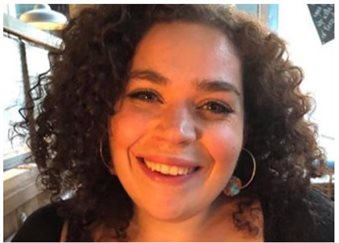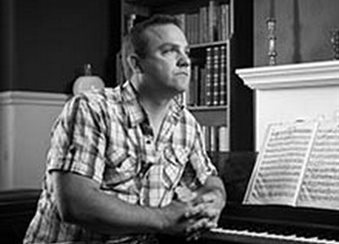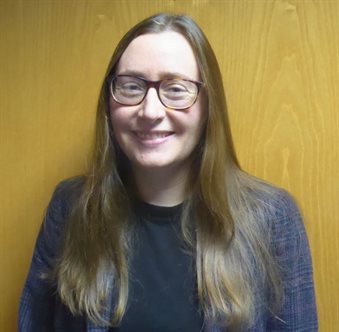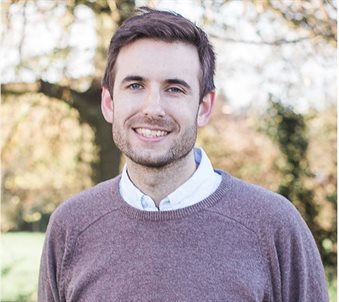Academic profiles
Find out more about some of the staff in the Department of Music. If you'd like to meet some of us in person, sign up to our open day.
Disclaimer: The modules we offer are inspired by the research interests of our staff and as a result may change for reasons of, for example, research developments or legislative changes. The modules mentioned on this page are examples of typical modules that we offer but are not guaranteed to be available in any particular year.
Associate Professor in Popular Music and Director of Black Studies

What's the first piece of music you fell in love with?
I grew up in what’s called the “Disney Renaissance”: The Little Mermaid to Mulan sort of time. They were almost all the films you could see at the cinema when I was small. According to my mum, I learned “Hakuna Matata” from hearing it in the cinema when I was very small and spent ages picking out the tune on the piano we had until it was right. I don’t remember that, so I am going to say “Who Do You Think You Are?” by the Spice Girls who were the first pop group I really remember or the Destiny’s Child album The Writing’s on the Wall, which was the first CD I ever owned. I still know all the words to all the tracks.
See Hannah's website here
If you could attend any musical concert in history, which would it be and why?
If I could attend any musical concert in history, it’d probably be Beyoncé at Coachella if I’m honest with myself. That or, in 1975, Stevie Wonder headlined a concert supported by Bob Marley and the Wailers in Kingston in Jamaica. At the end, Stevie Wonder and Bob Marley played “I Shot the Sheriff” and “Superstition” together. I can’t really think of a more amazing music collaboration.
What is your favourite module to teach and why?
My favourite module to teach is a course called Race in Music Theatre. We look at lots of musicals, operas, ballets, and film while also learning about critical race theory, ideas about racial and cultural representation, and how we write music and stories to communicate identity. This module is great because it is discussion led so students can direct what we cover. While we study this course, we think about ourselves – our positionalities – and the meanings different people find in stories told with music. Content ranges from looking at two themes “intersectionality” and “representation” in fan culture about Hamilton to looking at original draft song lyrics that show uncomfortable truths about early versions of songs we know in musicals today. Every year, students reach out to me to show me how it has affected the way they watch and enjoy films and musicals. For example, a group of flatmates were working through the Marvel films and started to unpack how the different characters and places the films include were shown!
What inspired you to teach your subject?
When I started my Music degree, I didn’t really know you could study musicals or think about how culture and society are shown in the things we enjoy watching and listening to. I was also aware that, as a mixed-race person, there weren’t many people like me around. The music I grew up with and enjoy listening to was not part of the music history I was studying. So when I did a PhD, I decided to move away from opera (which I also like) and focus on musicals. There’s something fun and rewarding about teaching with students who are either completely new to musicals or are super fans. The class dynamics involve lots of laughing in among some very serious topics.
Professor

Is classical music elitist?
When George Gershwin asked the ultra-modernist composer Alban Berg how he could like jazz when he wrote such complex atonal pieces, Berg replied: ‘music is music’. There is no such thing as classical music, just music you like and music you don’t.
If you could attend any musical concert in history, which would it be and why?
Woodstock 1969, obviously, but I’d also like to have heard Arcangelo Corelli play. He was the greatest violinist of the early 1700s and used to go completely wild on stage. An English tourist who saw him play in 1709 said that “his Eyes will sometimes turn as red as fire: his Countenance will be distorted, his Eye-Balls roll as in an Agony, and he gives in so much to what he is doing that he doth not look like the same Man.”
What's the first piece of music you fell in love with?
Dvorak’s New World Symphony. Although I don’t often admit it nowadays. Oddly enough, I was also into Blondie at the same time.
What is your favourite module to teach and why?
Eighteenth-century music. We get to make music from scratch, by copying the methods of choirboy apprentices, lady dilettantes, and castrated virtuoso singers. Students learn that it is much easier to compose than you think!
What inspired you to teach your subject?
I once heard the Head of Music at my school boast that he had reached the ‘top’ of the subject and could survey it entire, from above. I thought this was rubbish and wanted to prove it.
Associate Professor
My specialisms: 19th-Century music; the music of Franz Liszt; the symphony; musical biography

What's is your favourite composition or album?
Too difficult! At the moment I’m listening to lots of symphonies. Saint-Saëns 3 and Sibelius 5 are favourites. Liszt’s B minor Sonata and his symphonic poems Hamlet and Orpheus will always be special.
Read more from Joanne....
What is the best live performance you have been to?
Bruce Springsteen playing at Hyde Park. He carried on until they turned out the lights! Also hearing Vaughan Williams’ 5th symphony at the BBC Proms and thinking about when it had its premiere there during WW2.
What do you enjoy most about teaching music?
I like seeing students’ reactions when I play them a piece they haven’t heard before. I also like learning from my students – it’s good when they surprise me with their responses.
What do you wish you had known before starting an undergraduate degree?
That history is constructed. There are always different versions and perspectives of any event or piece of music. It’s good to question the established narrative!
Associate Professor
My specialisms: Early European music, with a focus on medieval churches and monasteries. Music books and their notations

What's is your favourite composition or album?
My tastes are fickle, but for inspiration I keep returning to Messiaen’s Quartet for the End of Time (1941)
What is the best live performance you have been to?
Either the Berlin Philharmonic or Snarky Puppy
What do you enjoy most about teaching music?
I never stop learning from my students. Everyone has been on their own musical journey, and Uni is the place where all those perspectives meet
What do you wish you had known before starting an undergraduate degree?
That music is so much more than the notes. I started as a performer, but fell in love with the history